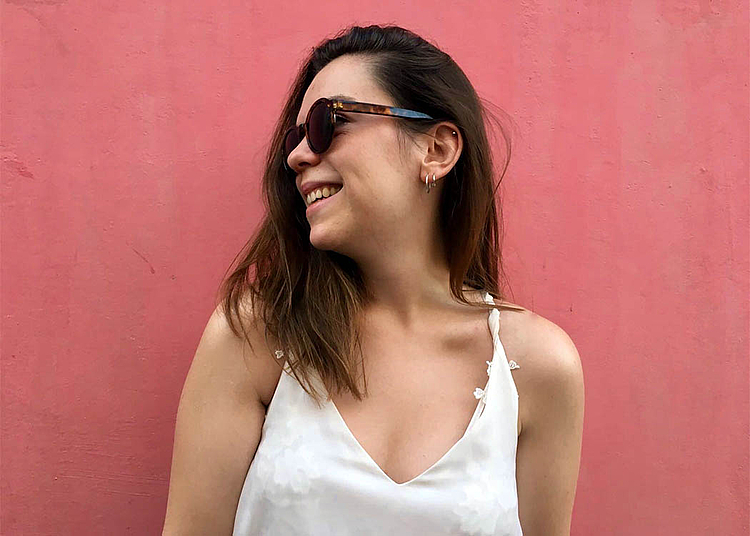What comes to mind when you think about your studies at Media University?
First of all, I think about all the practical experience I learned during my 2 year Master degree. I met and became friends with some incredible people from around the globe. Especially in the field of journalism, it is crucial to learn and grasp from different backgrounds in order to understand the world as it is today.
Why did you decide to study “M.A. Convergent Journalism”? And what made you choose Media University Berlin?
I decided to study M.A. Convergent Journalism as I already finished my BA degree in communication studies and anthropology. After a lot of theoretical background, I wanted to deepen my journalistic knowledge in a more practical way. After an exchange year in London, it was pretty clear for me that I wanted to stay in Berlin and try out a smaller university. I chose Media University Berlin as it seemed to offer lots of diverse and cross-medial seminars.
Did you get any work experiences prior to your master studies that you would like to share with us?
Throughout my Bachelor degree, I used the semester break and summer holidays as a welcoming time to develop and discover my future career path. As I am originally from Luxembourg, I worked in various fields of journalism back home, for example at our national newspaper and for the radio. Back in Berlin, I worked as a trainee at Deutsche Welle but sadly, Corona shortened my internship.
Which seminar/project did you like the most so far?
My two favorite seminars were definitely Business/Politics with Prof. Dr. Markus Ziener and Narrativity/Dramaturgy. Business/Politics helped me a lot to better understand international socio-political contexts. Moreover, as I‘m very into film, I liked every second of being my own producer/camerawoman in Dramaturgy class. We participated in several media conventions (for example the Internet Governance Forum 2019 in Berlin, editor's note) in order to gain hands-on camera experience and work in the field with real clients.
What is it like to be part of the workshop Talent Campus_Video? What do you like most about it?
I was very honored to be part of this workshop. My passion for film was shaped when I was much younger while reenacting Tony Hawk skateboard videos or trashy tv shows with my cousins. I always loved to play around with my old VHS camera, try out different angles and tell my own story through visuals. Of course, my favorite part about this video workshop was the freedom we were given to address topics of our own choice and create individual projects. In the end, we created our own tv show, which was super fun.

